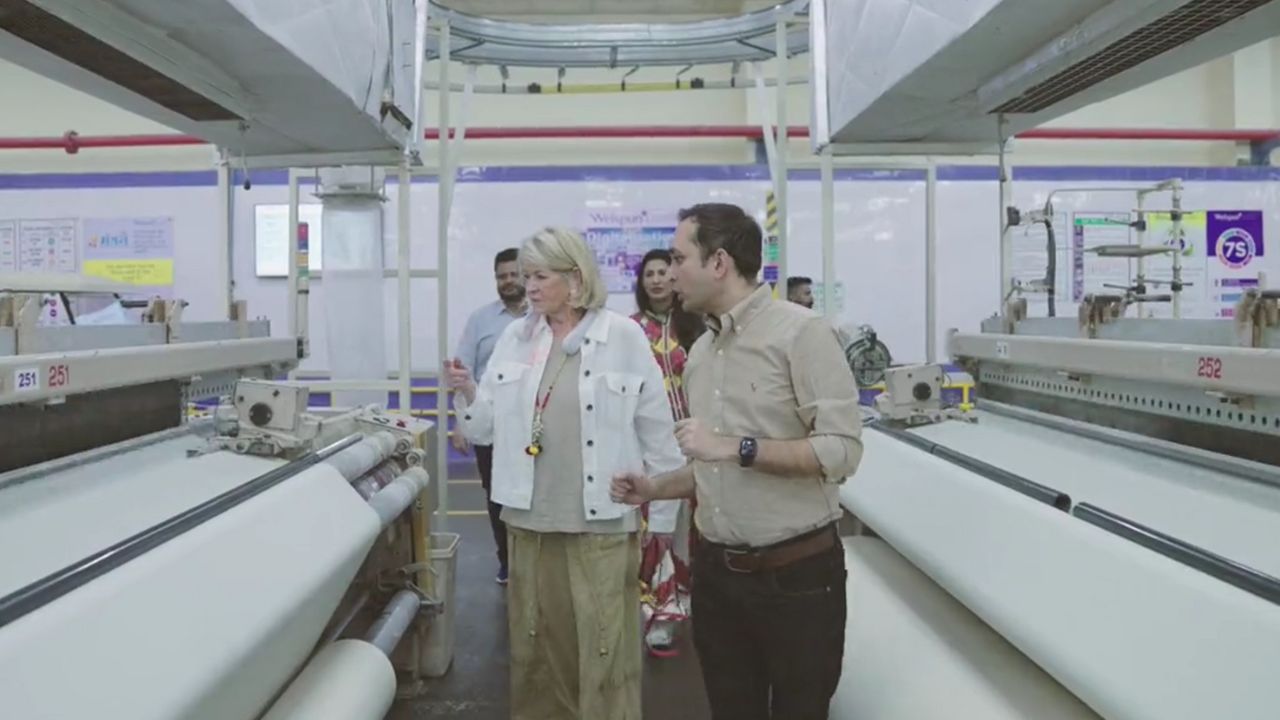MUMBAI (Diya TV) – Homemaking entrepreneur Martha Stewart is championing India as a top destination for textile manufacturing, citing challenges in producing goods in China amid pandemic disruptions and strained US-China relations. Stewart said she is bullish on India’s future during a factory tour at her sole Indian supplier, Welspun Living.
The global shift away from China’s dominance in the supply chain, known as the China-plus-one strategy, has provided India with an opportunity to expand its share in global manufacturing. While a significant portion of Stewart’s homeware products is still manufactured in China, she hinted at potential changes, noting the evolving nature of business contracts.
Stewart highlighted the supply chain difficulties exacerbated by the COVID-19 pandemic and the increasing challenges of doing business in China. Trade tensions between Washington and Beijing were also mentioned as factors influencing companies to explore alternative sourcing options.
The lifestyle entrepreneur, part of the leadership team at Marquee Brands, has been looking at alternatives for manufacturing and delivery, while distancing the business from political considerations. Stewart’s exclusive partnership with Welspun since 2019 has resulted in high-quality towels and bed linens.
Companies like Welspun play a large role in India’s “Make in India” export initiative, catering to US retailers such as Macy’s and Walmart. Despite India’s textile sector gaining momentum, challenges persist, including competition from other countries like Vietnam, Bangladesh, and Pakistan.
India received an additional boost in 2021 when the US imposed sanctions on products from Xinjiang, China’s major cotton-producing region, citing allegations of forced labor against the Uyghur minority. Deepali Goenka, CEO of Welspun Living, acknowledged the significant impact of the Xinjiang cotton ban, redirecting focus to India.
Stewart, reflecting on her diverse supply chain history through countries like China, Vietnam, Brazil, and Egypt, is not going to completely redirect the supply chain to India. While praising India’s potential, she acknowledged that not every capability matched their manufacturing needs.
Stewart would also like to see some manufacturing return to the United States, acknowledging many suppliers were based in the US in the 1980s.

